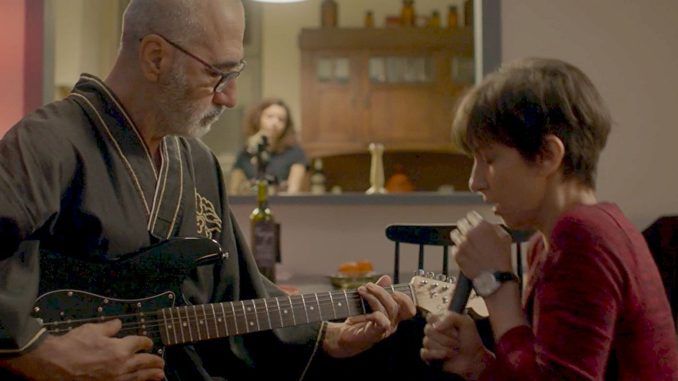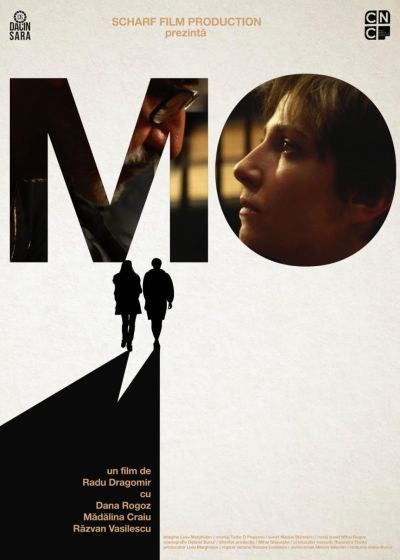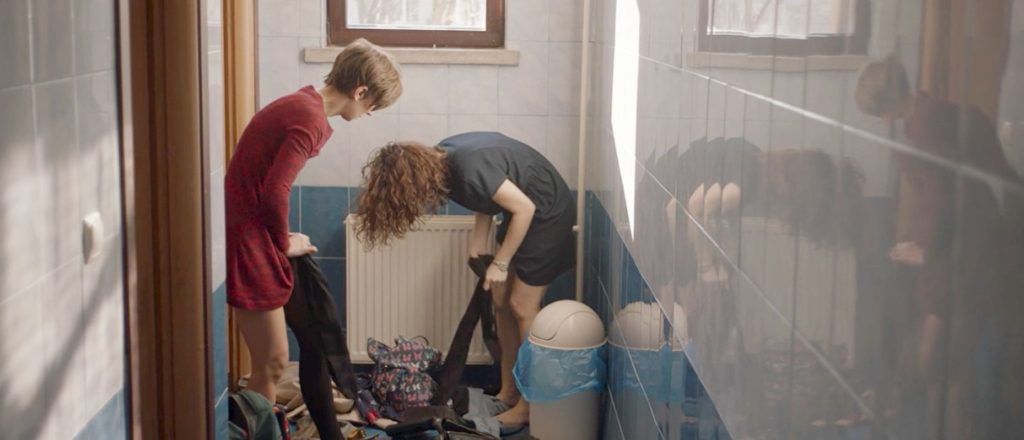
Rating: B-
Dir: Radu Dragomir
Star: Dana Rogoz, Madalina Craiu, Razvan Vasilescu
a.k.a. Mo
This was actually our third choice for the evening. I had to disqualify the initial selection, from Greece, after discovering it was older than Tubi said, and fell outside the qualification period for this feature. It was also a sequel to a film we hadn’t seen. Looking into the reserve option, from Peru, I found the two words that strike fear and terror into Chris’s heart: “found footage.” In deference to her sensitivities – and having no great desire to spend Friday night mopping motion-sickness induced vomit off the couch – I tabled it for solo viewing later. Which brought us to this, tagged on Tubi as drama/horror. It’s an awkward combo platter, leaning towards the former, yet I can’t say it’s an inaccurate one.
The original Romanian title is the name of one the lead character, being short for Monica, though I can certainly see why it was changed to something more punchy for a Western audience. The impulsive Monica Frasiniuc (Rogoz) and her rather more cautious best friend Vera Eftimiu (Craiu) are economics students at university in Bucharest, with a test coming up which neither of them are well-equipped to handle. So they opt to cheat, smuggling their mobile phones into the exam for help. This poorly considered plan rapidly goes wrong, with both girls being caught and Mo’s phone being confiscated by the hard-nosed professor, Ursu (Vasilescu), who threatens to expel them both from the school.
 That night, while out on the town, Mo calls her phone and the professor answers. He is at a nearby bar and agrees to give the device back, if the girls come and meet him there. They do, and then end up going back with Ursu to his nearby apartment. Which is where the drama starts to slide, slowly but more or less inexorably, towards horror. It quickly becomes clear that there is an avenue to the girls passing the examination, yet there will be a price to be paid for it, with Ursu in particularly targetting Mo, as the more vulnerable and easily-swayed of the pair. While she initially seems amenable to his advances – albeit somewhat drunkenly – she eventually has a change of heart.
That night, while out on the town, Mo calls her phone and the professor answers. He is at a nearby bar and agrees to give the device back, if the girls come and meet him there. They do, and then end up going back with Ursu to his nearby apartment. Which is where the drama starts to slide, slowly but more or less inexorably, towards horror. It quickly becomes clear that there is an avenue to the girls passing the examination, yet there will be a price to be paid for it, with Ursu in particularly targetting Mo, as the more vulnerable and easily-swayed of the pair. While she initially seems amenable to his advances – albeit somewhat drunkenly – she eventually has a change of heart.
Although there’s not an enormous amount actually taking place here, it does feel like there’s a lot to unpack, and I found myself chewing over the ramifications of it. First off, Mo and Vera can hardly be classed as “good girls”. Even after their first effort to cheat is discovered, they simply adjust their approach, learning another technique from a classmate (who, not entirely jokingly I suspect, requests sex in exchange for the knowledge). Earlier in the night, we see them try to blag their way into a concert, by pretending to be friends of the band, and when that fails, Mo engages in vandalism against the venue’s sign. While Mo is the instigator, Vera is an enabler, at the very least going along with her friend’s dubious schemes.
Does this mean Mo deserves what happens to her? Of course not. But she certainly needs to take some responsibility for it. It’s always struck me as odd that this applies for victims of any other crime. For example, if you leave your car unlocked and a laptop on the passenger seat, it should not be a shock if it gets stolen. But any attempt to suggest cause and effect for sexual assault is “victim blaming”. Events here result, not just from Ursu’s predatory nature, but also a series of poor decisions made by Mo and Vera. Not cheating. Not going to get the phone. Not returning to the professor’s apartment. Any of these would have broken the chain, and let to a very different outcome.
There’s also the question of trading sexual favours for… whatever. Is it always “wrong”? I tend to the view that if it’s two consenting adults, who agree on the terms, than it’s their decision – whether the payoff is money or a movie role. But educational achievements, as seems to be the (tacitly acknowledged) situation here? Far murkier. It doesn’t “harm” anyone else; it’s not as if only a fixed number of students will pass. But, it’s one hell of an ugly precedent. While there’s nothing to indicate clearly this is a pattern of behaviour for Professor Ursu, it certainly doesn’t feel like the first time he has engaged, in what is unquestionably an abuse of the power dynamic between a teacher and his student.
 While I could go on, and fill the entire piece with moral debate, I should discuss the movie. Considering most of it is two people talking, either Mo and Vera, or Mo and Ursu, it’s surprisingly interesting and well-made. The scene which will stick in my mind most is Ursu and Mo bonding over a shared interest in Joy Division, with him bringing out his guitar, and the pair deliver a rendition of Control, with Vera framed in the distance (top), her role reduced to that of a bystander. The lyrics, already poignant in the light of Ian Curtis’s eventual fate, acquire another, almost creepy, dimension under these circumstances: “A voice that told her when and where to act, she said I’ve lost control again.”
While I could go on, and fill the entire piece with moral debate, I should discuss the movie. Considering most of it is two people talking, either Mo and Vera, or Mo and Ursu, it’s surprisingly interesting and well-made. The scene which will stick in my mind most is Ursu and Mo bonding over a shared interest in Joy Division, with him bringing out his guitar, and the pair deliver a rendition of Control, with Vera framed in the distance (top), her role reduced to that of a bystander. The lyrics, already poignant in the light of Ian Curtis’s eventual fate, acquire another, almost creepy, dimension under these circumstances: “A voice that told her when and where to act, she said I’ve lost control again.”
At points, I was reminded of David Mamet’s Oleanna, and this feels like it could have originated as a stage play too. I did feel like the ending is fumbled, with Mo returning to Ursu’s apartment to retrieve her jacket, and… Well, to be honest, I’m not quite sure what happens, except it seems to have a strong impact on Mo. I have suspicions, but am disappointed the film seemed unwilling to commit. Overall, while one of the less obviously “horror” entries in the series, it is definitely one of the more thought-provoking ones. Sometimes, monsters don’t need to wear a hockey mask or carry a machete in order to pose a threat.
This review is part of our October 2024 feature, 31 More Countries of Horror.
